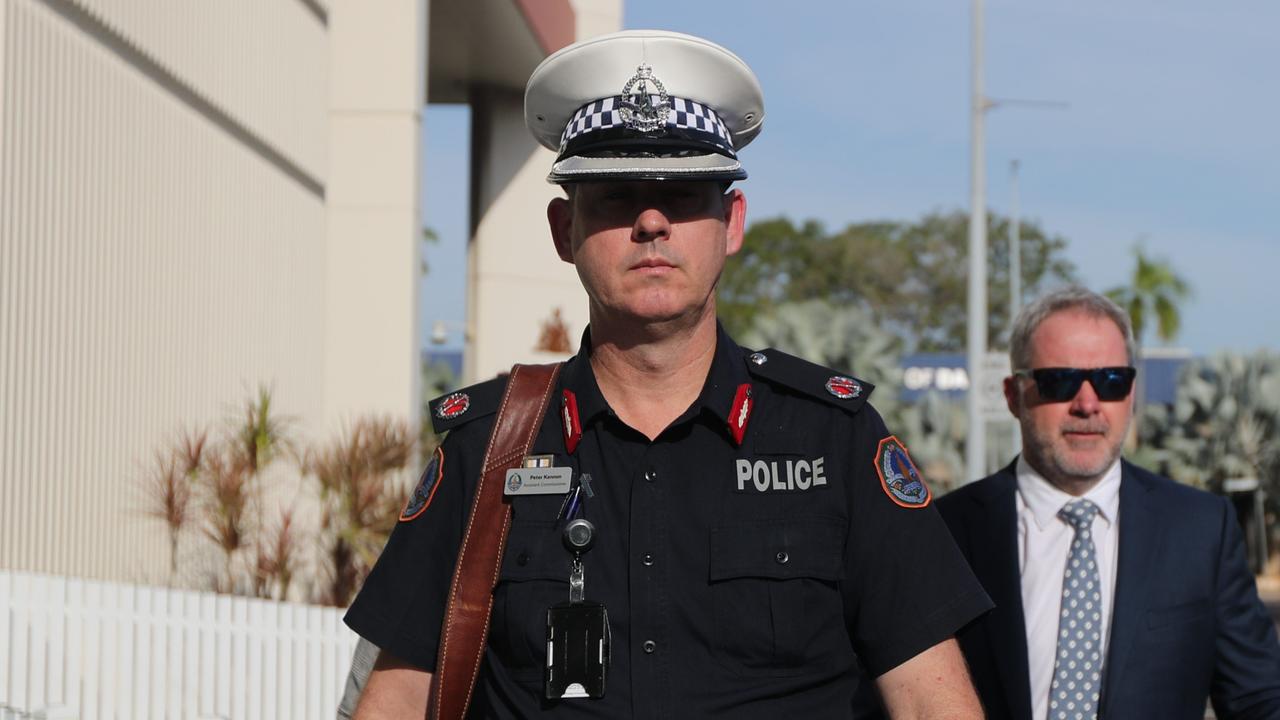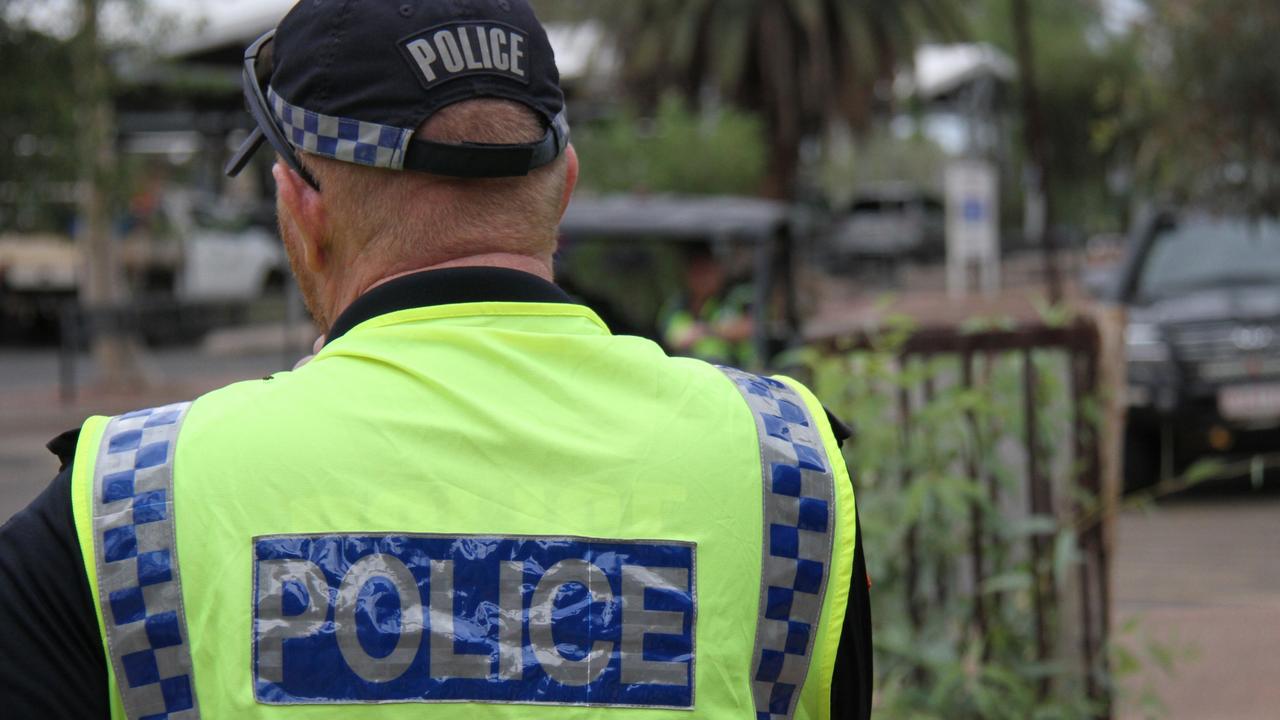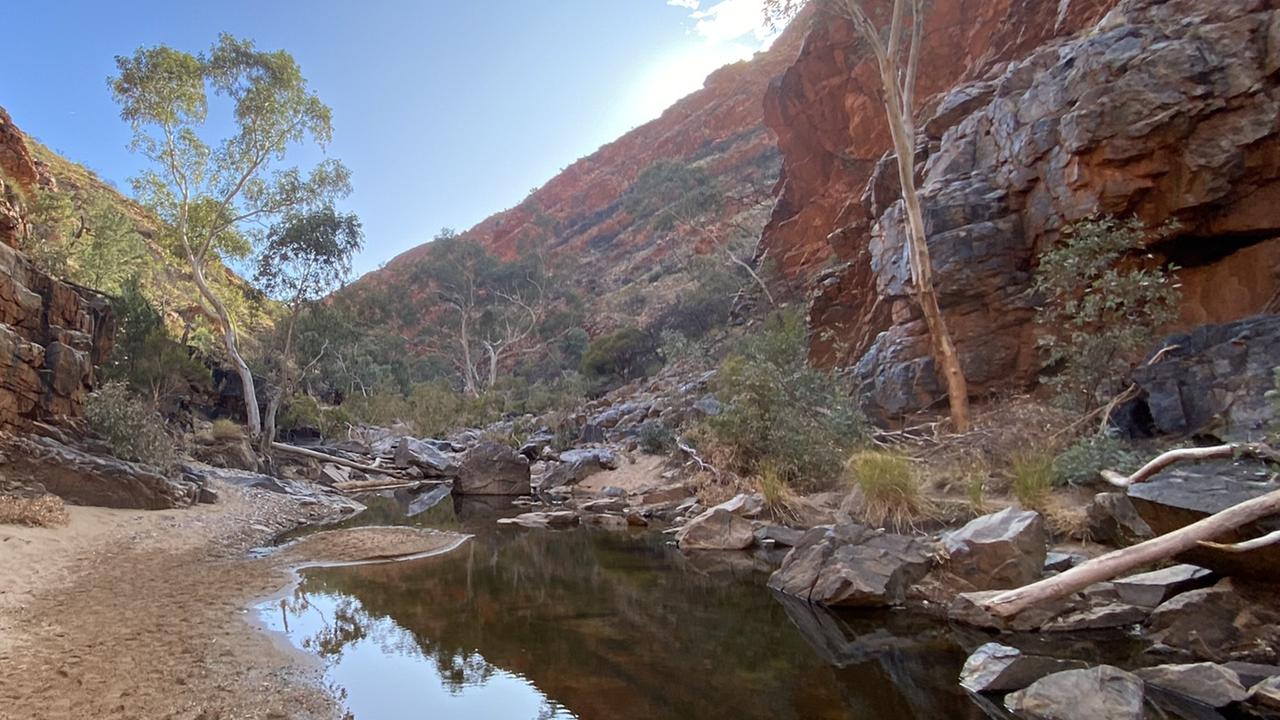Illegal foreign fishermen are facing Darwin courts in increasing numbers
Hundreds of illegal foreign fishermen have been caught in northern Australian waters in recent years. Experts explain why there’s been a sudden spike in the offending.

Northern Territory
Don't miss out on the headlines from Northern Territory. Followed categories will be added to My News.
A total of 29 foreign fishermen have faced Darwin courts in the past five months, reflecting a sharp jump in illegal foreign fishing in Australia’s northern waters in recent years.
The most recent case saw eight Indonesian men fined almost $10,000 after being caught with two shark carcasses and at least 10 shark fins, 10kg of soft and wet shark and fish fillets, 250kg of trepang (sea cucumber), and commercial fishing gear.
It was one of 515 illegal foreign fishing boats caught in Australian seas since mid-2020 – almost four times the amount intercepted across the entire decade prior.
Such numbers have not been seen since the mid-2000s when the Australian government launched a concerted crackdown to curb the practice.
The impact of the pandemic in Indonesia, declining fish prices, and a booming sea-cucumber market are largely to blame for the increase in boats, with many claiming they have been forced to fish farther south to make a living.
The Australian Fisheries Management Authority said illegal fishing was a threat to the sustainability of the Top End’s marine environment and domestic fishing markets.
“Illegal foreign fishing undermines Australia’s efforts to manage fish resources sustainably and can have devastating impacts on marine ecosystems,” an AFMA spokeswoman said.
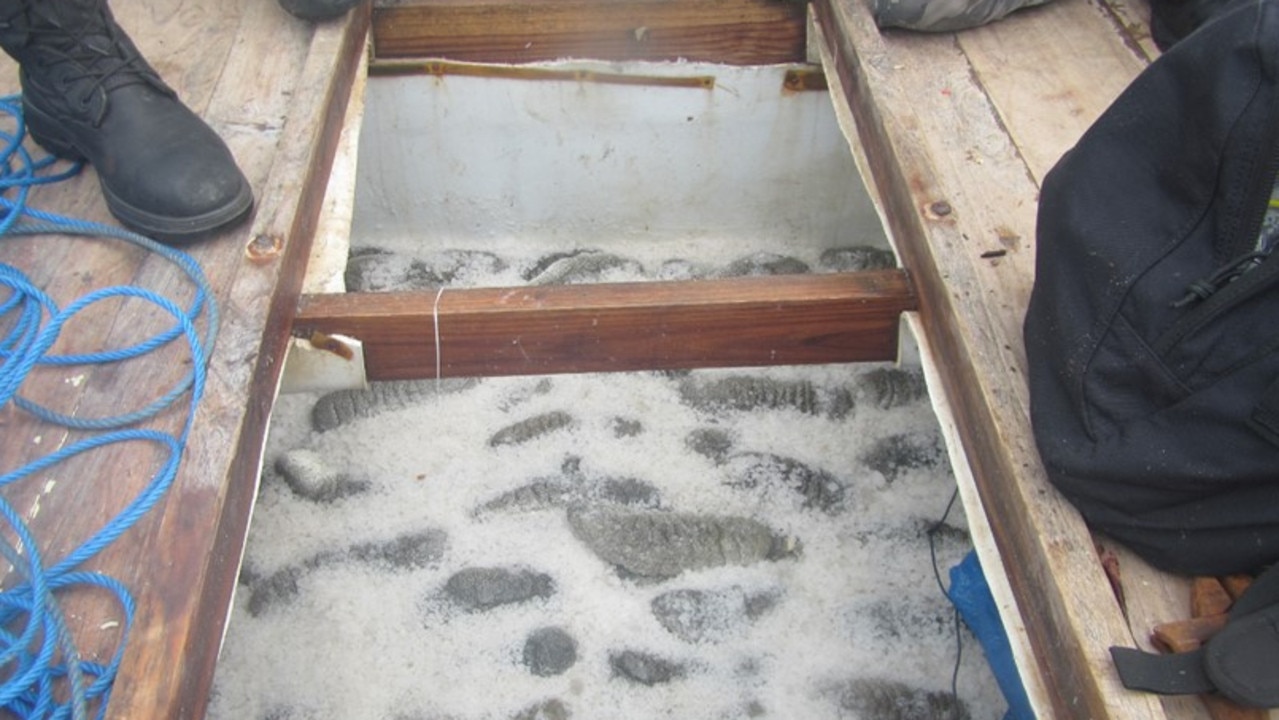
Detention, processing and prosecution of foreign fishers also places an added burden on Darwin’s already backlogged courts.
For the often poor fishermen, prosecution can mean falling into debt to the owners of the boats destroyed by Australian authorities.
Professor Natasha Stacey, who researches Indonesian fishers for Charles Darwin University, described illegal fishing as a “high risk, high reward opportunity”.
Many crew came from small island communities and were “highly dependent” on fishing to provide for their families, Professor Stacey said.
She explained overfishing – already a problem in the densely populated Indonesian islands – was made worse due to Covid restrictions.
“It meant that a lot of people were fishing for the same inshore species, which was bringing the price down of some species and therefore people were really struggling to make a living and support their families during that time.”
She said the pandemic likely forced many to borrow money to survive.
“In many cases fishermen borrow money to go fishing, but obviously if that fishing activity is unsuccessful they’re often still faced with a debt.”
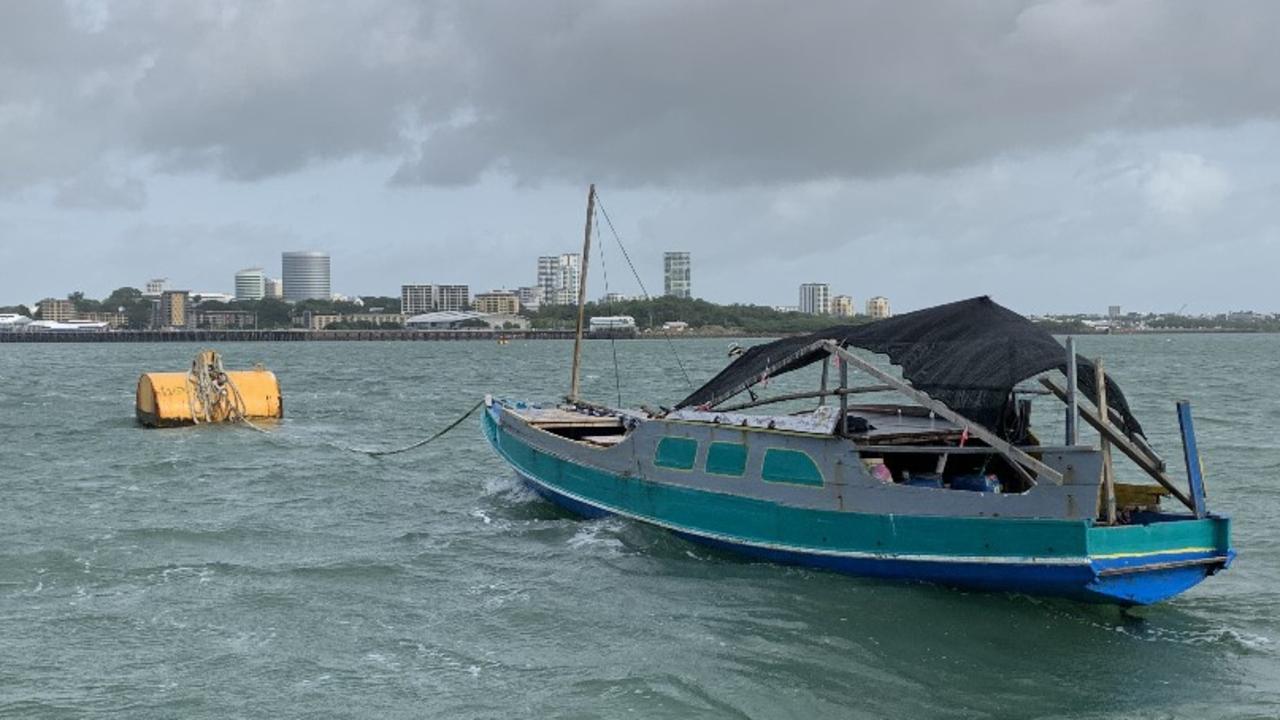
Most illegal fishing vessels set off from Indonesia’s Rote Island on a three-day journey to waters off north Western Australia.
Indonesian fishermen have been venturing to what are now Australian waters for hundreds of years, and a 1974 Memorandum of Understanding between the two countries allows for traditional fishing practices to occur.
Professor Stacey said honouring the agreement added to the complexity of dealing with illegal foreign fishing.
“We have some groups that have historically fished in the area that have made a transition from sail-power boats to motorised boats, but we also have some other groups that perhaps don’t have that historic interest or connection engaging in more opportunistic illegal activity,” Professor Stacey said.
Intercepted foreign fishing boats are not all brought into fisheries detention in Darwin for processing and prosecution.
Instead, most are subject to legislative forfeitures meaning their fishing equipment is seized, the catch is released and the crew are directed to leave Australian waters.
Covid border restrictions meant no fishers were brought to the Top End in 2020-21 or 2021-22, but there were 422 legislative forfeitures over that time.
In all cases of apprehension, and some cases of forfeitures, foreign fishing boats are destroyed; either burned and sunk at sea, or broken up and buried on land.
Since July last year, 14 boats have been destroyed, compared with 44 in the year to mid-2022, and 12 the year before that.
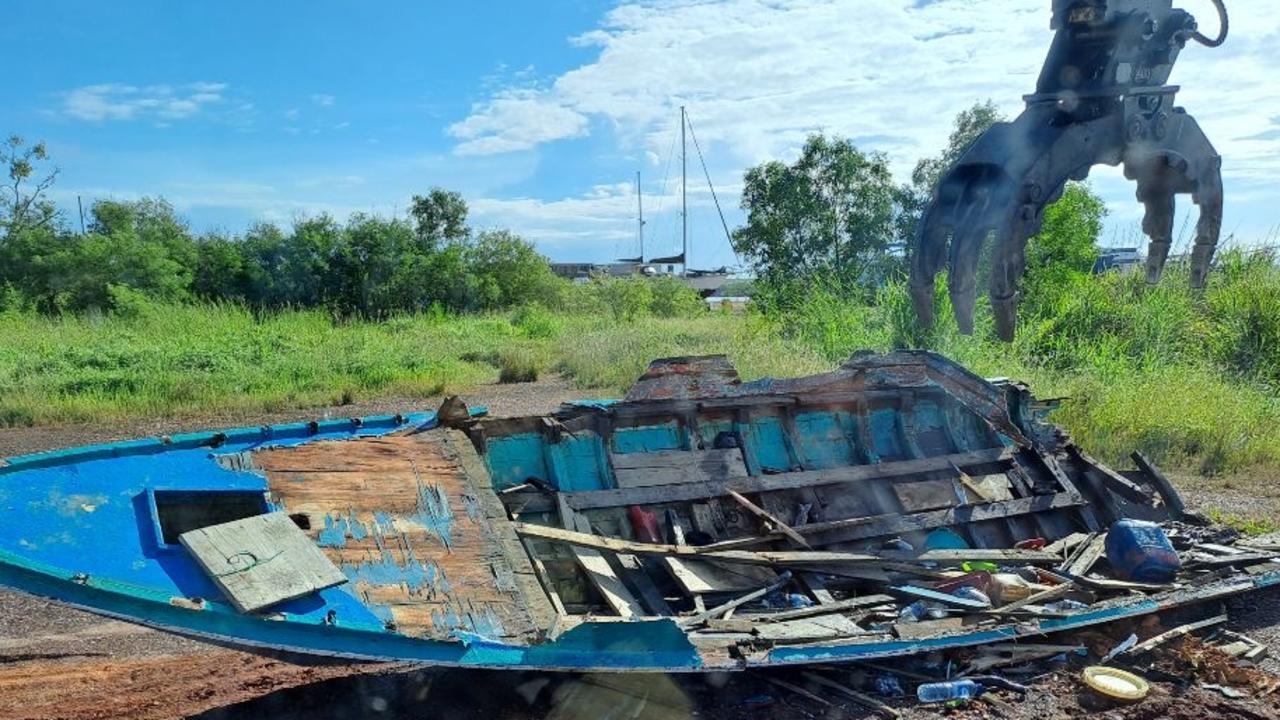
The fishing authority said it was working with a joint task-force including the Australian Border Force and Australian Defence Force to stop illegal fishing boats.
“This includes regular aerial surveillance, collaborative patrols with Indonesia authorities and the deployment of patrol boats to intercept illegal fishers and undertake enforcement actions,” an AFMA spokeswoman said.
AFMA said it was also working to “treat the issue at its source” through targeted education campaigns and by addressing the drivers behind illegal fishing.
SEE THE LATEST CASES IN THE NT
EIGHT MEN CHARGED ALMOST $10K
Eight Indonesian men caught illegally fishing in Australian waters were fined $9600 after being intercepted off the Western Australia coast.
Assisted by a translator, Saifudin M, 48, Harupin, 41, Ajis, 35, Gege, 34, Manto, 26, Jufri, 19, Madung, 19, and Imran, 18, (referred to by a single name in court documents), appeared before Darwin Local Court March 7, 2023 and were convicted of one count each of using a foreign boat to fish in territorial seas.
The men had been in fisheries detention since February 21, when the Australian Defence Force intercepted their Indonesian Type III commercial fishing boat, the Alwi Jaya, about 12 nautical miles offshore.
Located on board were two shark carcasses and at least 10 shark fins, 10kg of soft and wet shark and fish fillets, 250kg of trepang (sea cucumber), and commercial fishing gear.
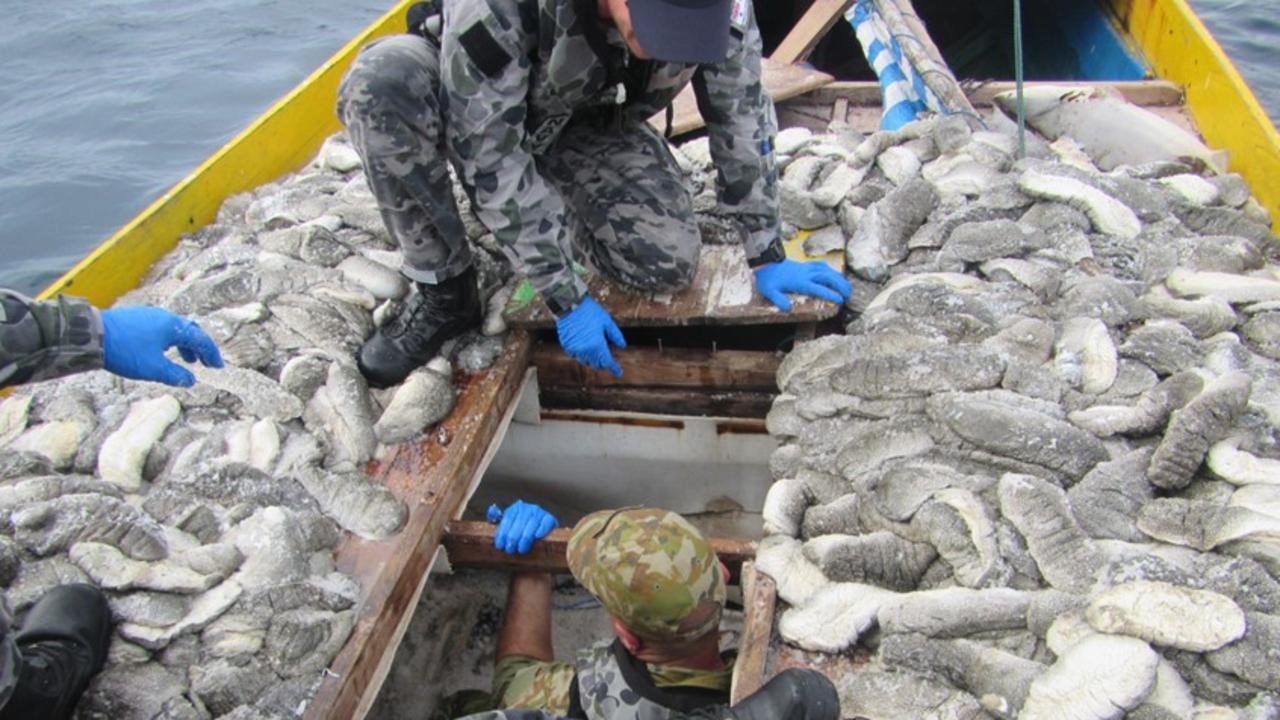
The crew was from Sulawesi and Rote Island, the Indonesian island closest to Australia.
Defence counsel told the court fishermen from Rote Island had been venturing to the waters where the Alwi Jaya was found for 300 years, and the crew were “primarily subsistence fishermen” without “very much money”.
He said the only person with experience of multi-day fishing journeys was the skipper, Saifudin M, and none of the men on board were the owner of the boat.
“The boat has of course been confiscated by the ADF, and it may be that members of the crew, and certainly the skipper, will be in debt to the owner of the boat,” he said.
The prosecutor argued the ecological impact of fishing in controlled waters threatened sustainability and damaged Australia’s environmental credentials.
They also noted the biosecurity risk of foreign vessels fishing so close to the mainland, and the high cost of detection, interception and detention.
“(Australian) fishing stocks are generally internationally regarded as well managed and that only works if we know who is fishing where, and having unlicensed people come in and fish undermines all of that,” the prosecution said.
A fine $1200 was issued to each of the eight men.
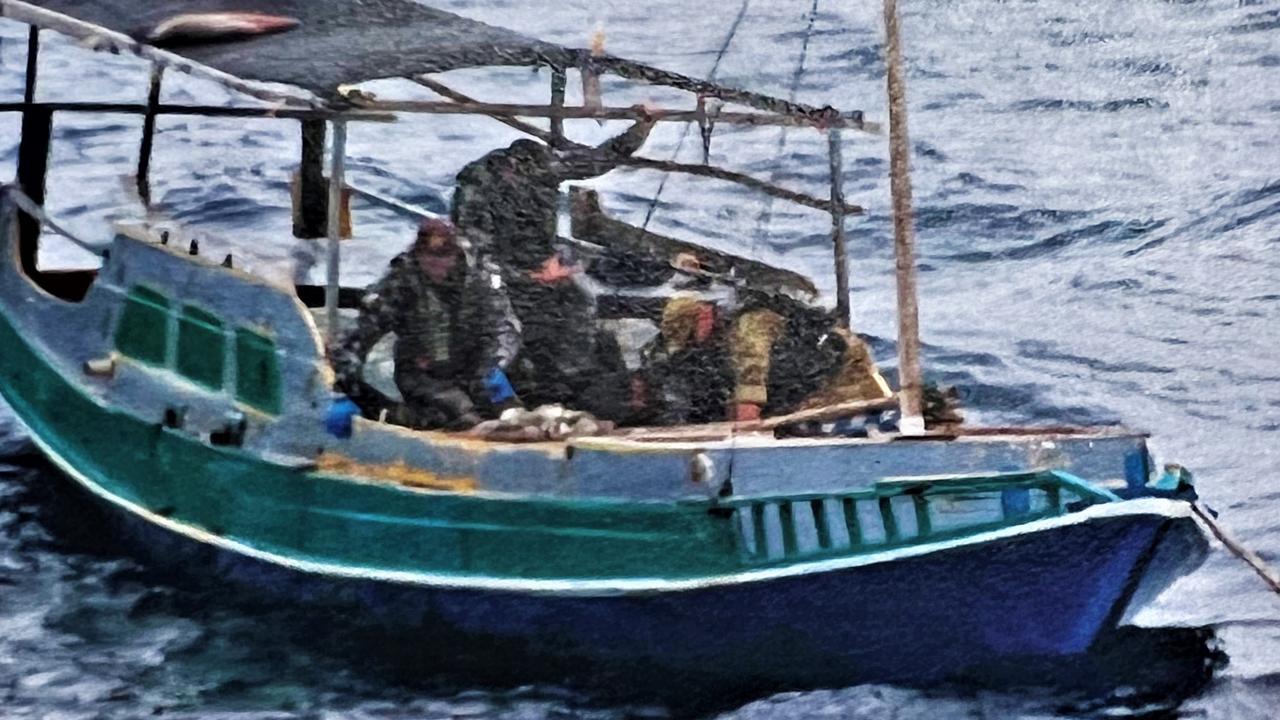
SUSPECTED ILLEGAL FISHERMEN LAND ON REMOTE NT COAST
Four men suspected to be illegal foreign fishermen were taken into police custody in Darwin.
Authorities were alerted to the group’s arrival on coastland near Wadeye, 400km by road southwest of Darwin, March 5, 2023.
An Australian Border Force spokesman alleged the men were “apparent illegal foreign fishermen”.
“Four adult males were located and taken into police custody,” the spokesman said.
Police did not provide details on the group’s nationality, nor their suspected reason for being in Australian waters.
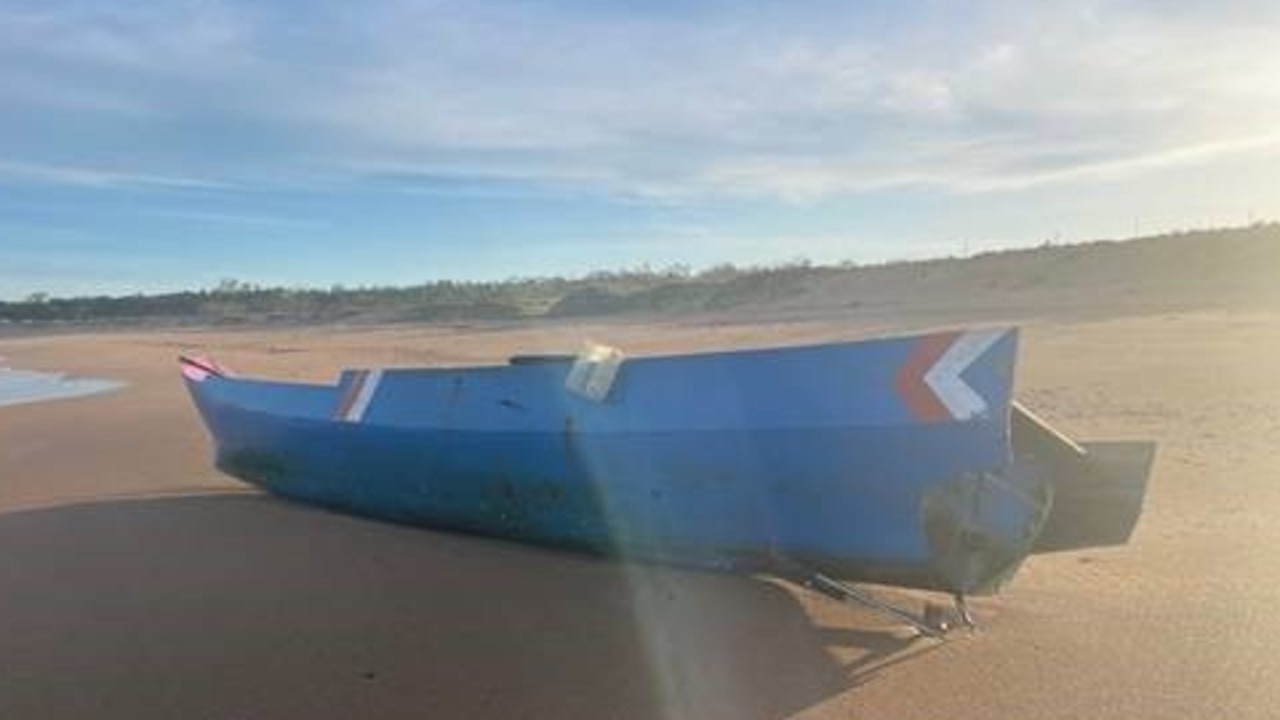
SIX MEN FINED MORE THAN $9K
A group of Indonesian fishermen were slapped with more than $9000 in fines after they were caught fishing in Australian waters.
The six men – Saida Bahar, Abdul Bakri Mau, Ab Pello, Boston Ramadani, Madun Saida and Jeskial Tualaka – appeared at Darwin Local Court March 1, 2023.

Australian Border Force intercepted the boat off the Kimberly Coast of Western Australia on February 10.
On-board they found 30 shark fins and 300kg of trepang stored in a large blue plastic.
They each pleaded guilty to the charge of using a foreign boat to fish in Territorial sea on a boat which had the capacity to illegally capture hundreds of kilos of fish.
FOUR MEN FINED ALMOST $20K
Four Indonesian fishermen were hit with $19,500 in fines after being caught with shark fins and a bag of dried fish off the West Australian coast.
The men — known on the court record only by their first names, Dewa, Irwin, Lexa and Safarin — appeared in Darwin Local Court November 28, 2022 to plead guilty to illegally fishing in Australian maritime waters.
Senior Commonwealth prosecutor Naomi Low told the court the men’s 10m-long wooden boat was intercepted by an Australian warship on November 11.

The warship crew boarded the boat and found four handlines and three 30kg bags of salt but no catch.
The crew were let off with a warning and told to leave the Australian maritime territory.
But six days later the same vessel was spotted 154 nautical miles past the maritime border.
An inspection of the wooden boat uncovered four shark fins, 10kg of dried fish and fishing equipment.
More Coverage
Originally published as Illegal foreign fishermen are facing Darwin courts in increasing numbers




